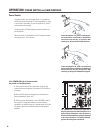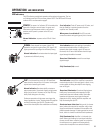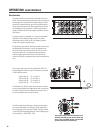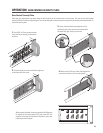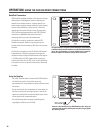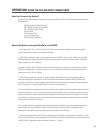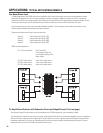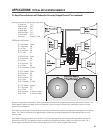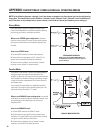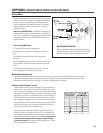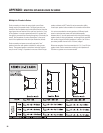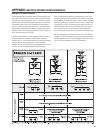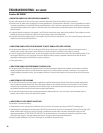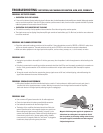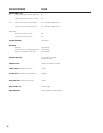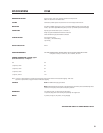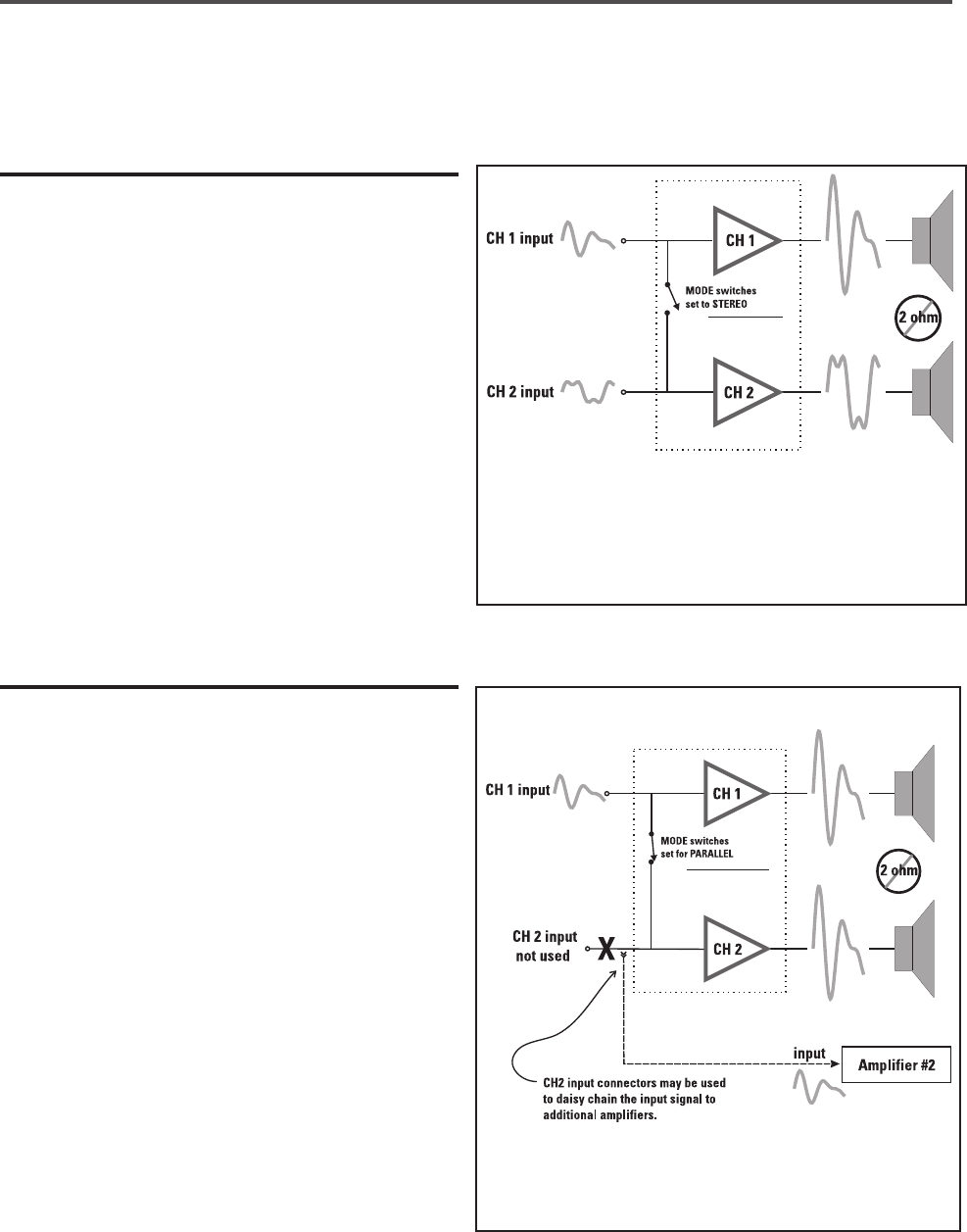
24
Parallel Mode:
Stereo Mode:
NOTE: Ensure that the MODE SWITCHES are set
to STEREO when feeding two separate signals to
the two channels.
STEREO MODE OPERATION
PARALLEL MODE OPERATION
APPENDIX: DESCRIPTION OF STEREO & PARALLEL OPERATING MODES
NOTE! In the following diagrams, channels 1 and 2 are shown as examples only. Any channel pair can be configured as
shown here. The channels pairs on the CX168 are : Channels 1 and 2, Channels 3 and 4, Channels 5 and 6, and Channels 7
and 8. Therefore, in any example below, replace channel 1 and 2 with the channel pair numbers you are setting up.
Each input signal is sent to its respective channel. Each
channel has independent low-frequency (subaudio) filtering,
clip limiting, gain control, and output connection.
When to use STEREO input configuration:
Use stereo
mode for stereo sources (L-R inputs) and any other situation
that requires each channel to be completely separate from
the other.
How to use STEREO mode:
1- Set the MODE switches for stereo mode operation.
2- Connect the two input signals to CH1 and to CH2 (or
signals may be provided from DataPort connection).
3- Connect the two speakers; one to channel 1’s output
terminals, one to channel 2’s output terminals.
The channel 1 and channel 2 inputs are connected together,
applying a
single input signal
to both channels of the
amplifier. A signal into any input jack will drive both channels.
Each channel's low frequency filtering, clip limiting, and gain
control still function independently. Each channel drives its
own speaker load.
You can patch the input signal on to additional amplifiers
(daisy chain) by using any of the remaining input jacks. This
feature eliminates the need for “Y” cables.
When to use PARALLEL input configuration: Use parallel
mode when you need one signal to drive both channels; each
channel having its own control (gain, clip limiter, low-
frequency filter).
How to use PARALLEL mode:
1- Set the MODE switches for PARALLEL mode.
2- Connect the one input signal to either channel’s input
connector. The unused input may be used for daisy chaining
the signal to another device or channel pair.
3- Connect the two speakers: one to channel 1’s output
terminals, one to channel 2’s output terminals.



